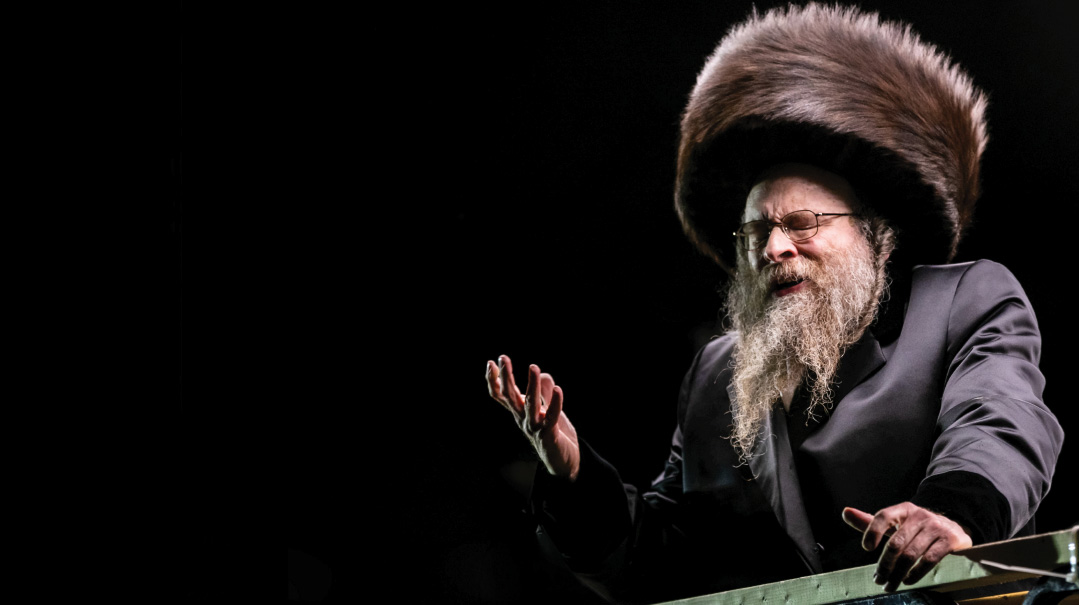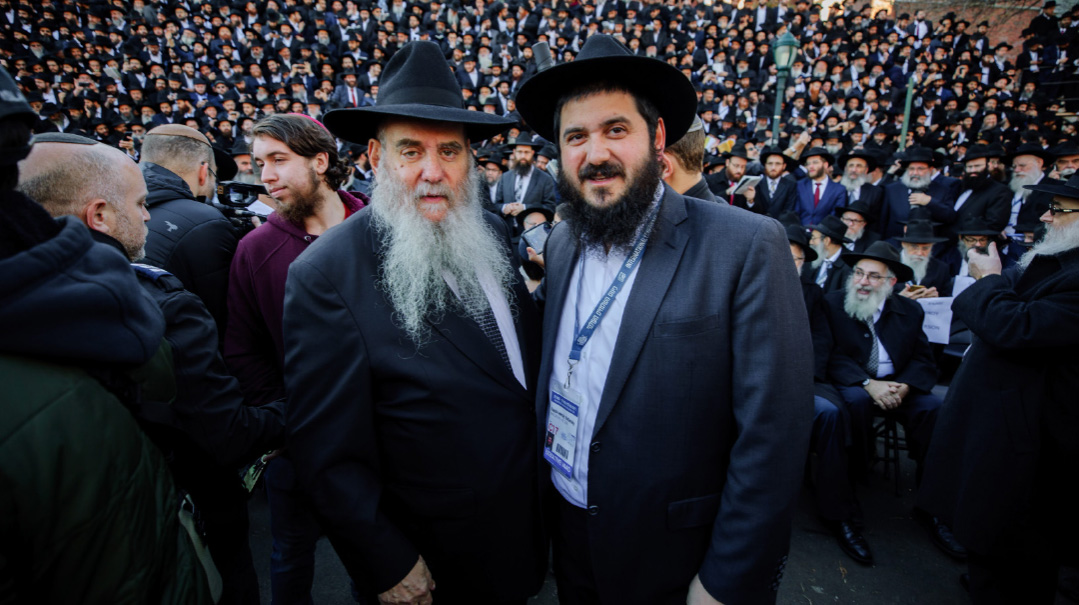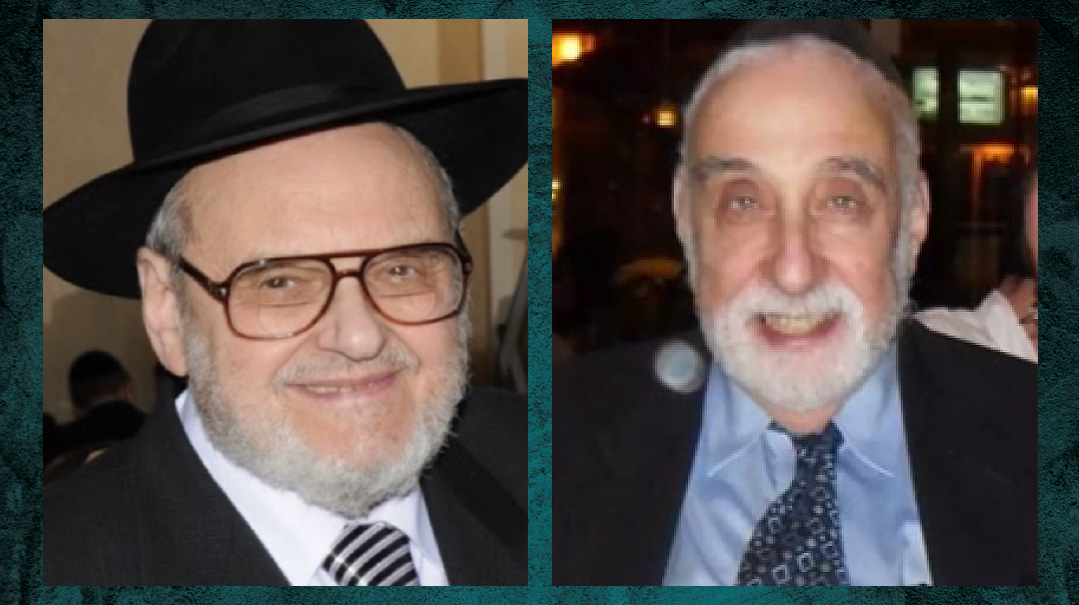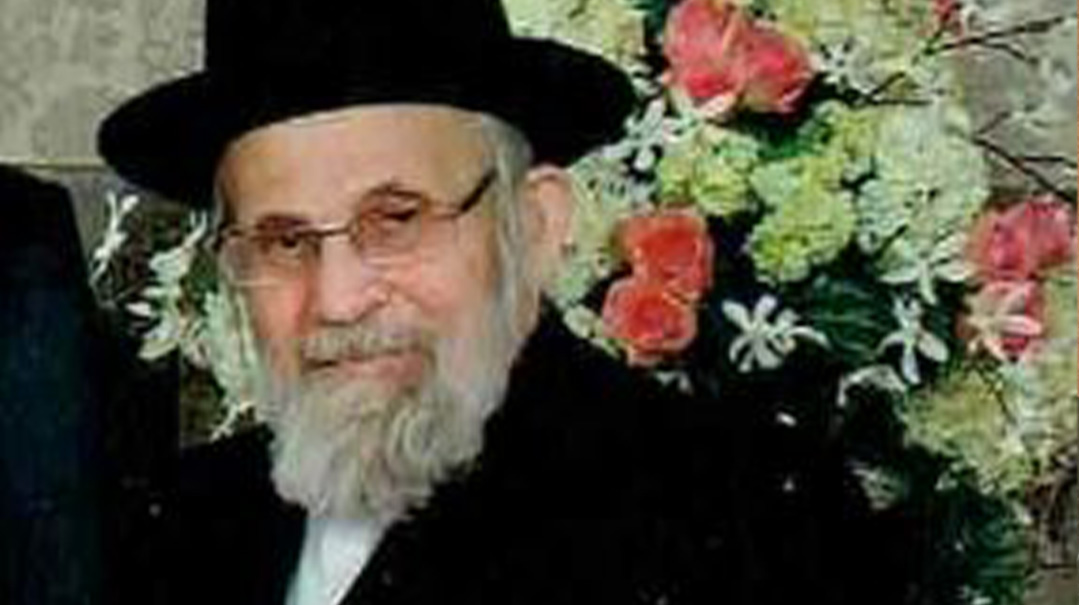As Long as I Love

Rabbi Menachem Braun’s legacy of compassion, respect, and firm emunah continues to inspire
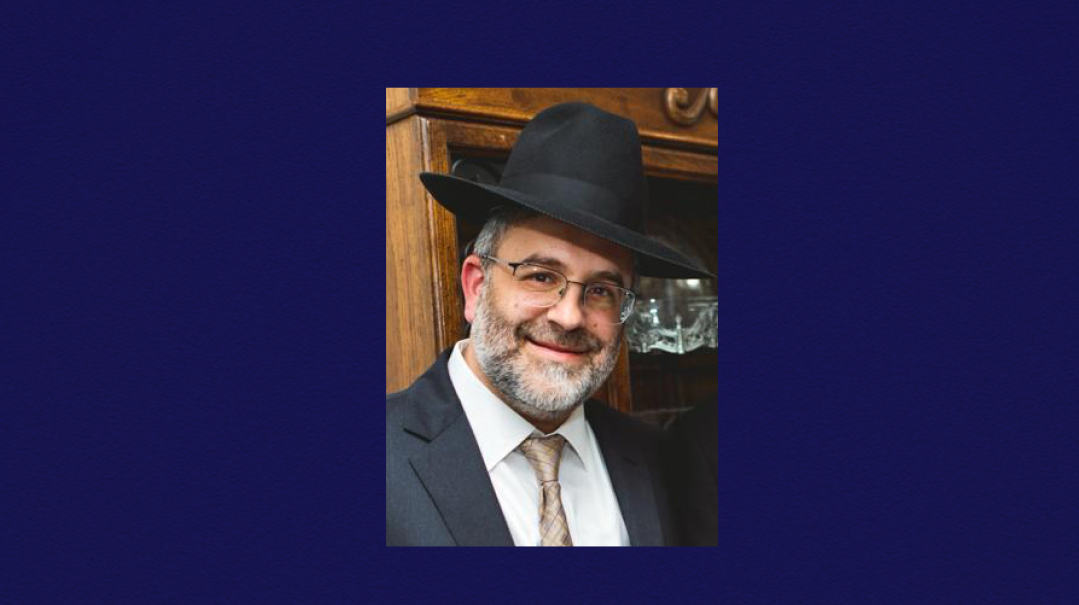
Many knew Rabbi Menachem Braun as the champion of at-risk youth, spending endless hours in conversation with children as well as parents, coaxing, guiding, encouraging, and, most of all, embracing, as they shared their pain. In fact, his love for mitzvos, for Torah and for fellow Jews went way beyond most people’s limits. While Reb Menachem’s tragic passing several months ago left all who knew him reeling, his legacy of compassion, respect, and firm emunah continues to inspire.
I’ll admit that several months ago, when I saw the news report that a beloved member of the Baltimore community named Rabbi Menachem Braun had passed away in a tragic boating accident, I sighed sadly and moved on. Some days later, I received a message from Rabbi Avrohom Neuberger, telling me that this Rabbi Braun was truly a special person and suggesting we run an article featuring his legacy. By then, though, the Yamim Noraim were upon us, leaving little time to begin new projects, and then Succos came, and then the war in Eretz Yisrael. The suggested article slipped my mind.
But enough excuses. I pushed this article off way too long. I apologize, Reb Menachem. I sincerely apologize. Because Rabbi Neuberger was right. Now that I’ve researched, I see what he means. This article should have been written months ago.
Another admission: Reb Menachem Braun isn’t an easy person to write about. Some people are made of stories; a series of acts and episodes string together to paint the picture of a single, comprehensive personality. Those make for easier tributes — once you find the stories, the personality comes to life.
But Reb Menachem was different. He was the story. His heart, his personality, his dedication.
His smile.
The written word can’t convey that. The best we can do is to share the recollections, the stories that were taken for granted because they came so naturally, and hope that the personality — the smile — shines through.
And if we succeed, the world will know of a man who did the job of a hundred men and took no payment as reward.
Reb Menachem, you were taken away at a young age. But forever you will live on — through the hundreds of lives you saved, nurtured, and inspired.
M
any knew Reb Menachem as the champion of at-risk youth. First in a professional capacity, teaching in multiple institutions including Priority 1 in Far Rockaway, Rabbi Nitzlich’s Mesivta in Spring Valley, and Baltimore’s Lev Shlomo; and later, simply out of good will, he would spend endless hours in conversation, with children as well as parents, coaxing, guiding, encouraging and, most of all, embracing, as they shared pain and begged for clarity. Reb Menachem made this his life’s pursuit, even as, for the most part, it wasn’t in the capacity of a paid position. He did it because he cared.
But while this may have been one of his more well-known roles, it was far from the only one.
At the levayah, his father, Rabbi Avrohom Braun, quoted the mishnah in Maseches Sotah (47a): When Yosi ben Yoezer and Yosi ben Yochanan passed away,“batlu ha’eshkolos” — the “eshkolos” expired.
What are eshkolos? The Gemara explains this to be an acronym for “Ish Shehakol Bo — a man who has everything.” Reb Menachem, his father said, was an Ish Shehakol Bo — he had everything. He was an expert gabbai; he was a baal tokeia, a baal korei, a baal tefillah. He had an incredible knack for dealing with people and the various challenges they endured. And he did all this even after he left his job teaching in Lev Shlomo and began a real estate business along with doing hashgachah work for the OU.
His legendary chesed flowed from each of these roles. He would blow shofar on Rosh Hashanah in shul, then walk for miles to blow for an elderly woman who couldn’t leave her home. When he learned that this woman adored children, he would bring his young daughter along with him. On Purim, after reading the Megillah in shul, he would read it again, sometimes twice, for those who couldn’t make it to shul.
Reb Menachem was deeply attached to the mitzvah of tzitzis. As a bochur, he worked in the famed Tuvia’s Judaica store in Monsey, where he would tie hundreds of pairs of tzitzis. But here, too, his passion would express itself in chesed.
O
ne Shabbos, Reb Menachem noticed that the tzitzis on one of his friend’s talleisim had started to fray. He tried pointing it out, but the next Shabbos, he noticed that the frayed strings remained.
Then it happened once that the fellow left his tallis bag in shul, only remembering to bring it home a few days later. The following Shabbos, he opened the bag, only to find a set of fresh, white, tzitzis tied to the tallis’s four corners.
Rabbi Zvi Weiss, rav of Bais Haknesses Ohr HaChaim in Baltimore, where Reb Menachem davened, once took off his tallis only to find it missing upon return. Reb Menachem, who was standing nearby, quickly scanned the shul and noticed that someone had accidentally mistaken the rav’s tallis for his own.
“There,” he said pointing, “it’s on that man over there.”
It’s a testament to Menachem’s wholehearted dedication to his rav, but the story gets better.
“That week,” Rabbi Weiss recounts, “Reb Menachem bought me a new tallis that had an atarah — this way it wouldn’t get mixed up again.”
There was a member of the shul going through a personal struggle that Reb Menachem was privy to. That Rosh Hashanah, the fellow entered the shul and went to his designated seat, only to find a brand new tallis bag at his seat. Inside was a note of chizuk, signed — Menachem Mendel Braun.
His wife, Chaya (daughter of famed kashrus expert Rabbi Avraham Juravel), smiles upon reflecting on the central role tzitzis played in her husband’s life. “When we got married, I was convinced that all talleisim looked the same. Wow, was I educated quickly! There are options for more textured weave, an extra lining strip across the main fold, the white piece at the top, and so on.”
Shnayim mikra v’echad targum was another mitzvah that held a special place in Menachem’s heart. He would learn one aliyah every day, reading rishon on Sunday, sheini on Monday, and so on. In fact, following his petirah, they found his Chumash with a bookmark up to the kriah of the day of the accident.
A humorous encounter once resulted from this dedication. When he was a bochur, someone approached him on a Thursday morning and asked, “Nu, where are you holding in the parshah?”
“I’m up to chamishi,” Reb Menachem responded innocently.
“Chamishi?” The fellow looked at him strangely. “You mean your fifth girl?”
“He lived with the parshah,” says Rabbi Leibish Becker, an uncle of Reb Menachem’s through marriage. “Whenever you met him, he would always have a vort on the week’s parshah to share.”
His wife shares a story that demonstrates this attitude of seeing everything through the lens of Torah. They had been planning a vacation for a long time, but when it was almost time to set out, the trip had to be canceled. Menachem wrote his wife a card saying that Hashem must want them to serve Him this week through the aspect of the “Korban Tamid” — the daily korban that served as an unchanging constant — and, im yirtzeh Hashem, the vacation would be rescheduled, and they would serve Him from within the facet of “Korban Mussaf” — an added extra beyond the daily norm.
Reb Menachem loved the sefer Sfas Emes and even led a Sfas Emes chaburah in his shul. He cherished the Torah of Reb Meilech Biederman and would constantly repeat these nuggets of chizuk in emunah and bitachon.
However, says his wife, he would only allow himself the pleasure of listening to Reb Meilech’s shiurim after he had completed shnayim mikrah, and the day’s daf yomi, as though saving the extra sweet dessert for last.
His love for mitzvos, for Torah, and for fellow Jews could come together in a single act. Reb Efraim Stein of Baltimore was shopping for arba minim when he was greeted by Menachem. Reb Menachem was handling several esrogim and produced one of them.
“Here,” he said, “I’m buying a few esrogim. But you’re still in yeshivah! You deserve a choshuve esrog!”
“That esrog,” comments Reb Efraim, “was the nicest I ever had.”
His passion for mitzvos even spread to young children. Reb Menachem once got a call from his nine-year-old nephew, Yitzchok Davis, who had a question regarding his tzitzis.
The next time Reb Menachem was at the Davis home, he said to Yitzchok, “Nu, how’s your tzitzis?” And then, “You know what? Go upstairs and bring me all your pairs of tzitzis — I’ll check them all for you.”
He was his nephews’ favorite uncle. When five-year-old Nosson Tzvi Kelemer threw a tantrum and his yarmulke fell off, Menachem bent down to pick it up. “Hey,” he told the child, “you and I both share something in common. We both have an iKippah size 3!”
The role he played as an uncle carried an eerie significance — it was one of the last messages he shared. On the Shabbos before the accident, Reb Menachem and his wife spent Shabbos in the Davis home. Directing his attention to his niece, he shared the following thought.
“It’s well-known that Elul is an acronym for ‘Ani l’dodi v’dodi li,” he said. “The word ‘dodi,’ which, in this context, means ‘my beloved’ could also be translated as ‘uncle.’”
An uncle, Reb Menachem explained, shares a unique relationship with his nephews and nieces, which holds an advantage even over parents. While parents obviously love their children, they must also hold the role of disciplinarians and exact punishment as needed. Uncles, however, do not carry such a responsibility. Their love can be unconditional, irrespective of the child’s behavior.
Hashem can act as a dod, an uncle, he finished, forgiving and embracing us even as we sin.
The boat accident occurred the following Monday, the message that “an uncle can love unconditionally” lingering mid-air.
It was a message that couldn’t describe him better.
Reb Menachem gave his entire heart and soul to the plight of struggling youth and, today, hundreds of teenagers can say of Reb Menachem, “v’dodi li,” my beloved is for me.” He loved them as that uncle they desperately needed — with full sincerity and zero judgment.
The deep sense of affection that Reb Menachem engendered applied to non-Jews as well.
As part of his role as mashgiach for the OU, Reb Menachem would spend two days each week in Pennsylvania, always staying at the same hotel. Under this recurring arrangement, he would leave personal items at the hotel to be retrieved on his next visit.
After the boating accident occurred, a family friend called the hotel, explaining that one of their guests had a life threatening accident, and his personal effects would need to be released.
The woman on the line screamed, “Don’t tell me it was Manny!”
She began to sob. “How can I tell my manager? Manny was our favorite guest. He made everyone feel good!”
R
egardless of the many projects Reb Menachem was busy with, his heart and soul were with the suffering teenagers who desperately needed his help.
At first, he worked as a rebbi in Lev Shlomo, a yeshivah in Baltimore specifically geared to struggling teens. Later he moved on to work in real estate, but he would forever remain in that world. He would be on the phone for hours, listening, sympathizing, guiding — often until two or three in the morning. Every one of his charges knew they were always welcome in the Braun home.
Each summer, he would spend a few weeks in Camp Extreme, where he was beloved by all campers, known simply as “Rabbi.” He didn’t need a name; he was “Rabbi,” the one who would always listen and always accept. Mrs Braun was fully invested in these pursuits as well, opening her home to those who, for one reason or another, could not return to their own.
There’s no counting how many lives Reb Menachem impacted — futures were transformed merely by the light of his smile. And even when Reb Menachem spoke, the message seemed disproportionate to the change it affected.
Eli, a talmid at Lev Shlomo, describes the roller coaster of defiance he was on. In the course of a year, he’d dyed his hair before shaving it off, ultimately joining a gang and getting into terrible trouble. One afternoon, Eli was sleeping fitfully when he suddenly awoke to see a familiar figure sitting beside him.
“Good morning, Eli,” Menachem said.
“Gmm.”
Menachem leaned over and lit Eli’s cigarette.
“I have a question for you, Eli,” he said. “Where do you see yourself in ten years?”
The question shocked Eli. Ten years? Who thought about anything in ten years?
“Eli,” said Reb Menachem softly. “Do you want a family? Do you want a home? Do you want peace of mind? Fulfillment? Success? Meaning?”
Eli was silent.
“Eli,” Reb Menachem pressed on, “you’re intelligent. You’re fun. You made it through the roughest childhood. I see you in ten years with a beautiful, frum family, living a life of meaning and purpose. I don’t know when, but I know you’re going to go far. Very far.”
That was all he said.
Five years later Eli called Reb Menachem to invite him to his wedding. He had gone to Eretz Yisrael, studied in yeshivah, made some drastic changes in his lifestyle and was now about to get married to a wonderful frum girl.
At the wedding, Reb Menachem danced with Eli. They danced and danced and danced. And then Reb Menachem pulled Eli to the side.
“I knew you could do it,” he said.
Today, that boy is now a rosh kollel, living together with his wife and many children in Yerushalayim. His kollel — with some 25 avreichim — has completed over 15 mesechtos upon which they have collectively taken in excess of 150 tests.
Shortly before Purim, two teenage girls approached Menachem.
“We don’t want to fast on Taanis Esther,” they told him. “Just because Mordechai and Esther fasted, we have to fast too?!”
Reb Menachem produced a Mishnah Berurah and showed them how the Chofetz Chaim explains that the purpose of the fast is to remind us that Hashem sees and hears every Yid’s personal tzarah, just as He did with Mordechai and Esther.
Those girls ended up fasting. After Purim, they told Reb Menachem that they had told their friends what he had said, and they fasted as well.
“If only we had more teachers like you,” they told him, “we would be in a much better place, much faster.”
He knew every local policeman by first name, and, whatever the hour, he would be there to take calls and tend to whatever trouble had occurred with “his” boys.
During his hesped, Rabbi Avrohom Braun quoted the Gemara in Sotah which describes Dovid Hamelech’s reaction to his son, Avshalom’s death. The Gemara cites the pesukim in Shmuel II (19:1, 5): “Bni Avshalom, bni, bni Avshalom, mi yitein mosi ani tachtecha, Avshalom bni, bni… V’hamelech la’at es panav vayiz’ak hamelech kol gadol bni Avshalom, Avshalom, bni bni — My son Avshalom, my son, my son Avshalom; would I had died in your place, Avshalom, my son, my son… And the king covered his face, and the king cried with a loud voice, ‘My son Avshalom, Avshalom, my son, my son.’ ”
Commenting on the fact that Dovid cried the word “bni” eight times, the Gemara says that with each utterance, Avshalom was elevated from one of the seven chambers of Gehinnom. With the final, eighth, “bni,” Avshalom was brought into Olam Haba.
“I don’t need to say ‘bni’ to bring Menachem out of Gehinnom,” said Rabbi Braun, “he brought thousands out of Gehinnom!”
Having stood at the helm of Ohr Somayach for decades, Rabbi Avrohom Braun was a frequent address for parents experiencing difficulty with their children’s chinuch. Often, he would refer them to his son as a leading expert in the field.
“The last phone call I had with him was this past Friday,” his father said at the levayah. “He called to say he has a ‘besurah tovah.’ He had solved a terrible problem that I had sent his way, involving a teenage girl who was about to destroy her life. He managed to work things out and saved her. That was our last phone conversation.”
A counselor in Camp Extreme struggled with low self-esteem, and Reb Menachem would constantly encourage him. On the final night of camp, each counselor was given the opportunity to share a few words with the whole camp. This counselor rose to speak and began to issue apologies for not doing a good enough job. Suddenly, Rabbi Braun stood up, walked over to the counselor, and whispered “Stop, enough.” Then he gave him a huge hug and began clapping for him. Within moments the whole camp rose to their feet and awarded the counselor a standing ovation.
But it wasn’t just struggling teens. Anyone and everyone who crossed paths with Reb Menachem would be enveloped in his warm and generous embrace. He would keep it up for years, sending weekly voice notes:
Hi, hope all is well, just wanted to wish you a good Shabbos.
Hi, hope all is well — did you pass your driver’s test?
Hi, just wanted to wish you a Gut Yom Tov. May Hashem fulfill all your tefillos.
A 26-year-old unmarried girl whose 23-year-old sister got engaged received a phone call from Reb Menachem on the night of the vort.
“Hi,” he said, “I know this is hard for you. I’m just calling to make sure you’re okay.”
Shortly after Reb Menachem’s passing, the 26-year-old got engaged.
“I am convinced,” she says, “that Reb Menachem pulled the strings in Shamayim.”
The effectiveness flowed from his sincerity; Reb Menachem was a very honest man. In fact, that truthfulness once almost served to his detriment — but not quite.
He once had a flight to catch, but delayed by construction, he arrived with minutes of takeoff. The clerk informed him that he wouldn’t be allowed to board. Reb Menachem took a deep breath and took a few steps away from the counter. He reached for his phone and texted his wife.
I missed the gate closing and they won’t let me on the plane. Gam zu l’tovah. I will not get angry at the clerk. It’s from Hashem.
He then turned around and showed the clerk what he had written, explaining the concept of “gam zu l’tovah” and how all is for the best.
The clerk looked shocked. “You mean you’re not upset? Everyone else yells at me!”
The clerk then grew serious. “Listen,” he said, “I can get you on this flight if you’re handicapped. Are you handicapped?”
“No,” Reb Menachem replied, “I’m not.”
“Uh, are you sure about that?” the clerk pressed. “You sure you’re okay? What about your feet — do your feet hurt you?”
“No,” Menachem aid, “my feet are fine.”
“You sure about that? You sure nothing in your feet hurt at all?”
“Well,” Reb Menachem said slowly, “I had to rush to the gate so, yes, my feet sort of hurt.”
“Great!” the clerk said and promptly sat Reb Menachem down in a wheelchair, wheeling him onto the plane just in time for takeoff.
T
he straightforwardness would dictate his approach to his children’s chinuch. Reb Menachem never shied away from admitting fault or apologizing when he felt it necessary. Once, following a disagreement with one of his children, he sent the following text:
The conversation last night didn’t go smoothly. As I think about it, I probably didn’t understand what you were asking and got impatient. Sorry about that. Patience is something that I have been and continue to work on very much for myself and people around me. Let’s see if we can reset and have it go properly, I will do mamash my best to be patient, clarify, and understand calmly and have the best matzav possible.
With much love and happiness I’m doing everything I can to make all the details happen as much as possible as you prefer.
Have a great day!
Hatzlachah,
Love,
Tatty
There was an honesty to how he expressed emotion; on a typical Motzaei Shabbos, he would leap to his feet and begin dancing with his children, singing traditional Motzaei Shabbos zemiros.
And it was likely that honesty that made his concern so impactful. Everyone knew when he asked about their well-being or offered a word of chizuk, he truly meant it. If he didn’t see a neighbor for a few days, he would reach out.
Once, he learned that someone in the neighborhood was going through a challenging time. He approached the fellow and shared the following story: Even as a young child, the Baal Shem of Michelstadt was known as a great genius, and his reputation spread to the point that the powerful local ruler, the Count of Furstenau, wished to meet with him. When the young boy arrived at the palace, he was admitted inside. However, he was not told where exactly the count was located. Nevertheless, the Baal Shem of Michelstadt entered briskly, walked up the staircase, and knocked on a specific door. The count answered.
“How did you know I was here?” he asked, shocked.
“When I arrived at the palace,” explained the Baal Shem, “I noticed that the window shades of all the rooms were open but one. I realized that that must be the room you’re in.”
Reb Menachem turned to his friend. “Life is hard for you. The shades are closed. But that means that the King is there.”
On Monday, the 11th day of Elul, Reb Menachem went on a boat ride together with his wife when a freak accident occurred, leaving him unconscious. For days, he lay in a hospital bed in the University of Maryland, while people around the world davened as hard as they possibly could, begging Hashem to keep alive the man who had kept them alive.
On Shabbos Parshas Nitzavim-Vayeilech, the Braun family huddled together, whispering Tehillim. Reb Menachem’s brother, Reb Moshe Braun, had flown in from Eretz Yisrael to be there as well. For many years, Reb Moshe served as the head of the Hatzalah of Beit Shemesh, and so he was able to manage the complex medical discussions with the doctors easily.
At noon, there were no doctors around, and Reb Moshe entered his brother’s room and put his finger to his wrist. There was no pulse. He tried again. Nothing. He had been in the business long enough to know when it was over. Slowly, he left the room and informed his parents and sister-in-law that their beloved son and husband had passed away. The family grieved, beginning to share the memories of a man who loved and was loved so much. Then, sometime later, a nurse entered and they informed her that there was nothing left to be done. She, too, placed her hand on his wrist.
“There’s a pulse!” she cried.
Reb Moshe rushed over and reached out to his brother — and saw the nurse was right! The pulse had returned!
For several hours, Reb Menachem’s pulse continued to beat; he was unconscious but very much alive.
Shabbos afternoon came, when Reb Menachem would ordinarily be eating Shalosh Seudos, singing the ancient song of Yedid Nefesh with his beautiful voice.
Yedid nefesh, My soul’s beloved
Av harachaman, Merciful Father
Meshoch avdecha el retzonecha, pull Your servant closer to Your Will.
He would sing, the words ringing so true.
My soul’s beloved… merciful Father… closer to Your Will.
For decades this was Reb Menachem’s model; he was the friend, the father, the one who brought so many servants closer to His Will.
Reb Menachem lived with the weekly parshah. This was parshas Nitzavim-Vayeilech, in which the Torah tells us “V’anochi haster aster panai bayom hahu — and I will surely hide My Face from you on that day.”
Afternoon waned, a window in the University of Maryland hospital began to darken, the shades began to close.
Hashem was hiding His Face.
Reb Menachem turned to his friend. “Life is hard for you. The shades are closed. But that means that the King is there.”
And then his pulse gave a final beat and the Heavens opened to allow a true yedid nefesh to stand before a loving King.
(Originally featured in Mishpacha, Issue 997)
Oops! We could not locate your form.

